From Tesco’s merger with Booker, to the Co-op Group’s acquisition of Nisa, consolidation took place throughout the industry in 2018. Now the new order is settling down, are independent retailers beginning to reap the rewards?
This time last year the industry was in a state of upheaval. Retailers formerly supplied by Palmer & Harvey, which had collapsed into administration a few weeks earlier, were left seeking alternative sources of supply - among them Costcutter retailers who were left in limbo ahead of a supply deal with the Co-op Group. Nisa retailers were also waiting for the group’s takeover from the Co-op to complete, while Booker-supplied retailers were pondering the imminent impact of the wholesaler’s merger with Tesco. Meanwhile, Bargain Booze and Select Convenience-owner Conviviality Retail was a growing convenience operator, having posted a like-for-like sales rise in its most recent half-year results and preparing to supply the 127 Central Convenience stores it had acquired from a subsidiary of P&H.
Three months later Conviviality Retail was acquired by Bestway Wholesale after parent company Conviviality plc had suffered a spectacular and unexpected collapse in March. “It just goes to show no one’s too big to fail,” says one Bargain Booze retailer, looking back. “You could be left with no stock and credit, and the administrators could potentially go after you.”
Dean Holborn, who owns two stores in Surrey, experienced the highs and lows of the tumultuous past 12 months. Despite concerns over the viability of P&H, he was caught off guard when the supplier collapsed. “We were led to believe things were sorted. You don’t believe a company with a turnover of £4bn would just turn off the lights,” he says. “Who knows when something similar will happen again?”
It is an experience he never wants to repeat, and one he urges other retailers to be prepared for - however unlikely it may seem. “The impact was massive, initially. In hindsight I should have got a van and gone to cash and carries to keep the store running. You also lose your credit terms with your former supplier - I had to speak to my bank, I might have needed a bigger overdraft,” Dean adds. “When I found a new supplier, I had to build up a new relationship and my old epos was no longer relevant - you’re starting from scratch, you just rip up the manual.”
His new supplier is Blakemore Trade Partners, which has resulted in a much wider range and the introduction of own-brand Spar products. “There’s been an uplift in chilled sales and the own brand has been very successful. Tobacco margins have been hit because P&H was very strong on tobacco, but tobacco sales are down anyway,” Dean points out. Sales over Christmas were especially strong, and now Dean is riding the crest of the wave. “Who knew I’d have been here now a year ago?” he says.
Many retailers will be hoping for a similar outcome to the recent upheaval and have high expectations from recent mergers, especially in the face of intense competition and political and economic uncertainty.
Nisa retailer Sid Ali, who owns four stores in Aberdeenshire, says the Co-op’s buyout of Nisa has not only brought stability to his symbol group, but also unexpectedly quick results. “I’m impressed with how quickly they introduced the Co-op range - they had to give notices to their suppliers, after all.
“The range is bigger than I expected. At the moment I’m still trying to assess what sells - you need to suit the range to the customers and their needs. Chilled products are good, and some things are selling really well, such as fish cakes with cheese and smoked salmon,” he says.
Nisa chief executive Ken Towle tells C-Store: “So far, it’s been a very happy marriage. All the opportunities we thought there would be have started to appear. We’re really pleased how Nisa and the Co-op are working together. The Nisa team is stable, we’ve found the right rhythm of working together.”
He says the introduction into Nisa stores of 800 top-selling Co-op products - lines which account for about 60% of own-brand volume for the group - went well in 2018. “Nisa stores buying Co-op products hasn’t yet made a material impact [on buying terms], but it holds all that potential to do so in future,” he adds. “Retailers should expect to see improved sales and improved margins due to the better mix. Expect to see cost lines increase too, because fresh food requires more labour and more wastage, but net-net we would expect them to be more profitable.”
Nisa retailer Harj Dhasee, of Mickleton Village Store in Gloucestershire, says he is looking forward to having access to the whole Co-op range. “They are pushing hard to reduce pricing and increase our return on Co-op own label. However, this is leading to Nisa losing its USP with Heritage own label,” he adds. “The Co-op has a long way to go before they understand the independent retailer.”
Sid says he believes the Co-op is listening and responding to feedback. “Fruit and veg should be smaller cases for smaller stores - they’re used to Co-op-sized stores. But they’ve said they’ll reduce pack sizes.”
He would also like to see better category management and merchandising advice in order to fully capitalise on the Co-op range. “For example, we don’t know what Co-op wines to stock. We have access to the wines without the knowledge. Just tell us what the best-sellers are.”
A Nisa spokeswoman counters this by saying Nisa’s category management team “has created a series of guides to support the rollout of Co-op own brand, which highlight how best to merchandise a store based on the retailer’s requirements”.
Going forward, Sid would like to see Nisa retailers benefit from innovations in technology, such as self-scanning, as well as access to the Co-op’s new compostable bags, which have been rolled out to more than 1,000 Co-op stores where the local authority accepts them as part of household food waste collections. Sid says the Co-op is open to the idea, although a spokesman for the group says “decisions about the next phase of the rollout have not been taken as yet”.
Another element of the Co-op’s Nisa acquisition is for both Costcutter and Nisa retailers to become Co-op franchisees. “The franchise solution is ready to go, but we’ve not yet lined up a [Nisa] partner. But three franchise stores are already under way with the Costcutter-managed estate,” Towle confirms.
Costcutter’s supply deal with the Co-op went live in May. “As part of the 13,000 lines available, we’ve also rolled out more than 800 Co-op lines with circa 1,000 more set to be launched in Q1 of 2019,” a Costcutter spokesman says.
“To coincide with our new supply deal going live, we’ve also introduced new, simplified commercial terms. Our retailers now benefit from the most transparent and easy-to-understand terms in the market, boosted by a rebate scheme that cannot be bettered.”
David Wyatt, who owns three Costcutter stores in West Sussex, is particularly pleased with the new supply arrangement, although he concedes that he started from a low base. “With P&H we celebrated a lorry arriving,” he asserts. “Sales have increased in all stores, and by 13% in our forecourt. The own brand gives us a better return, too, and is good value, and is especially popular in our village store, which is in a less affluent area.”
He adds that the 6% rebate scheme is paid more regularly than before and is up to 30% higher than he received prior to the Co-op deal. “I have concerns about the economy, but no negatives regarding Costcutter.”
Great expectations
While the picture painted by Costcutter and Nisa retailers is rosy, likewise Premier, Londis and Budgens retailers have high hopes of benefiting from the economies of scale created by the Booker-Tesco merger early last year.
Booker believes the benefits are there to be had. “We are currently working hard in partnership with Tesco to improve choice, price and service for our customers and are looking forward to delivering these benefits in the coming months,” a Booker spokeswoman says.
For Dave Hiscutt, manager of Londis Westham Road in Weymouth, Dorset, the overall impact of the merger has been positive to date. “I can’t say we’ve seen massive cost changes, but stability in deliveries has been excellent. We now know exactly when they’re coming and they have been fantastic at sticking to those times,” he says.
“The big win for us has been additional ranges, though, such as the new chilled snacking lines. Additional ranges have given us a chance to compete with the multiples. For example, I had never been able to access the large Cadbury’s trifles. I was able to start running them last month, although I don’t know if it’s fully down to the merger. It allows us to give our customers a better choice.”
However, West Yorkshire Londis retailer Barrie Seymour is disillusioned with the impact of the merger. “I haven’t felt anything yet. Nobody knows anything about what could happen in 2019. They tell us stuff is happening in the background, but I don’t see anything,” he says.
“Why am I still going to Tesco to buy tins of Cadbury Roses to refill the ones in my store? Why don’t they just get in with us? I find it a little bit flat to be honest. I don’t see anything happening and it’s been over a year now.
“Tesco banking I’d be happy with, something as simple as that. That’d save me a lot of money, but not happening. It would be happy days - you’d think ‘I’m saving £400 odd a month’ and that’d be it,” he adds.
“We were told we were getting better prices. If they don’t get their finger out I’ll be moving on. We should be hearing things now, we’ve had nothing for two years.” Barrie adds he’s had offers to trial click & collect in store, but “nothing ever comes of it”.
Chris Shelley, a Budgens retailer in Horsham, West Sussex, is similarly unimpressed. “Unfortunately, we’ve seen zero impact. Hopefully it may start to change, but I’m not sure it will. We hoped there would be some quick wins, but they haven’t materialised as of yet.
“It is disappointing. It was much talked about, but they’re not really doing much with it. I don’t expect anything for the new year and beyond - there’s been no communication in terms of strategy and going forward at all.”
Chris adds: “The only promises made so far were at their original roadshow when it all started. It was all what it may deliver without specifics - just better prices and ranges and so on. So far, we’ve seen very little, if any, filter through.
“If I was really trying to look for any positive, we’ve seen slight improvements on Easter egg pricing, but not enough of a shift that anyone would get too excited.”
The Booker-Tesco merger has also had an impact on One Stop franchisees, some of whom are now receiving chilled and frozen deliveries from Booker via its new distribution centre in Hemel Hempstead, Hertfordshire. Franchisees, such as Leamington Spa retailer Sunder Sandher, have welcomed the service and availability of the deliveries.
Bigger and better?
Bestway was also a big player in industry consolidation last year. “While consolidation is reducing the number of players in the market, each player is now bigger than ever before and it’s inevitable that only the strongest players will thrive and grow,” says Bestway Wholesale managing director Dawood Pervez. “At Bestway, we are utilising our own size and financial stability to work with suppliers and drive benefits for retailers, having made acquisitions from Conviviality Retail [now Bestway Retail], P&H [Bestway Vans Direct] and two Blakemore depots.
“Working with suppliers, our greater scale gives us better negotiating power, resulting in better promotions, costs and reward packages for retailers including a new rewards package for Bargain Booze franchisee holders - already many of our suppliers have supported us with the harmonisation of terms across both businesses.”
The addition of the Bargain Booze, Select Convenience, Central and Wine Rack brands has enabled Bestway to offer a broader range of options. “Whether a retailer wants to become a franchisee, join the Best-one symbol group, a retail club or become a multiple account customer, we believe that joining a group will become even more crucial for retailers to provide a competitive consumer offer in a consolidated market moving forward,” Pervez maintains.
He adds: “Bestway Retail franchisees now have access to an extended fresh and frozen range which will be delivered from our soon-to-be-launched chilled distribution centre, all offering high margins.” The addition of Bargain Booze also enhances Bestway’s licensed offer and its knowledge of categories such as premium spirits, Pervez says.
Bargain Booze retailer Lia Rutter, who owns three stores in Macclesfield, has welcomed the extra margins from the Best-one own brand, as well the 4% rebate she says she is entitled to. In two out of three of her stores sales rose last year, while they were flat in the other site, “despite a tough year”.
Best-one retailer Gareth Hooton is optimistic about the future with Bestway. “We had good promotions and prices all of last year. I expect things to be better than ever this year,” he says. “I’m always comparing with other wholesalers and Bestway is always up there in terms of prices, if not the best.
“With everything else so unsettled, what with Brexit and rising wage costs, I’m relieved I’m with a steady supplier.”
Hopefully in 2019, consolidation will provide a direction currently missing from the rest of the UK economic and political landscape.
High hopes for united wholesalers
Unitas Wholesale was formed from the merger of the Today’s Group and Landmark Wholesale in November. Unitas now represents 179 independent wholesalers with a combined turnover of £8.5bn. Of these, 80 wholesale members with a combined turnover of £4bn trade specifically with the independent convenience retail sector.
All existing retail fascias from the two former groups - Today’s, Day-Today and Lifestyle - will be retained, but a single core range will be drawn up under the existing Today’s Plan for Profit label, and negotiations for a common promotional schedule across all fascias and retail clubs will begin this year. A new digital platform will monitor compliance to the core range, which will be highlighted on web-ordering pages and with POS material in depots.
Managing director Darren Goldney says the new group’s vision is to be suppliers’ first choice business partner, championing brands and the independent sector, and called on them to invest for mutual growth.
McColl’s and Morrisons: Rocky end to 2018
The ripple effect of Palmer & Harvey’s collapse spread far and wide. At the beginning of last year McColl’s Retail Group signed a deal with Morrisons for the supermarket chain to supply its 1,300 convenience stores and 300 newsagents. By August the group had already completed the transition of more than 1,300 stores to Morrisons supply, while like-for-like sales for the six months to that date were growing.
However, in December McColl’s issued a profit warning after announcing that its annual like-for-like sales had fallen by 1.4% as the c-store chain continues to navigate its way through the “significant supply chain disruption” caused by the collapse of Palmer & Harvey, which had previously supplied about 700 McColl’s stores.
Furthermore, the accelerated rollout of Morrisons supply had also led to “a few teething issues” with availability of the supermarket group’s new Safeway brand in stores. How McColl’s performs in 2019, once P&H-related disruption plays out, remains to be seen.
















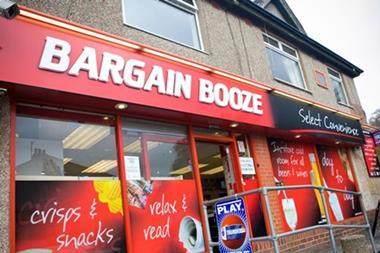
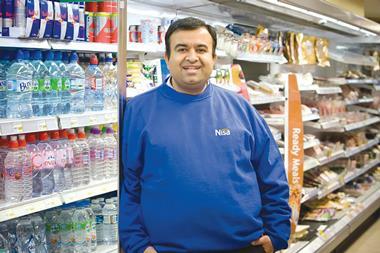
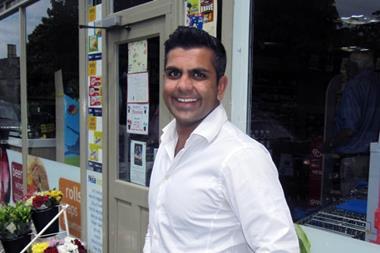
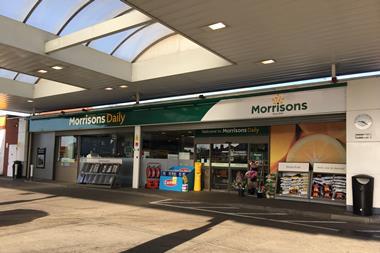
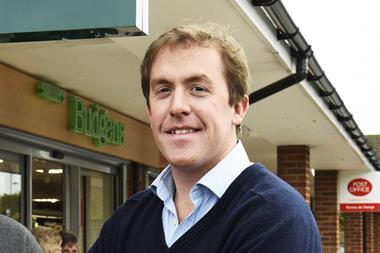





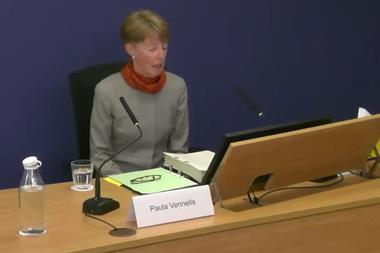

1 Readers' comment